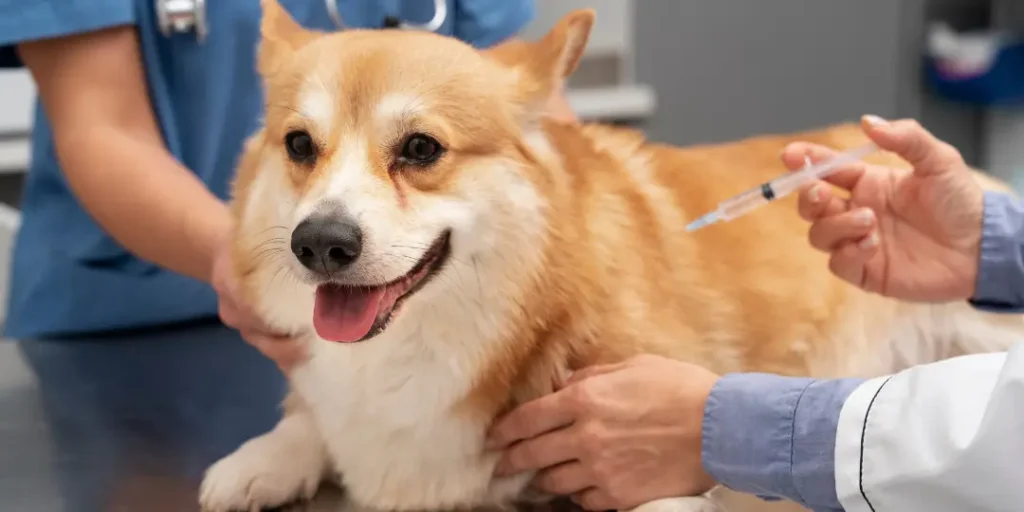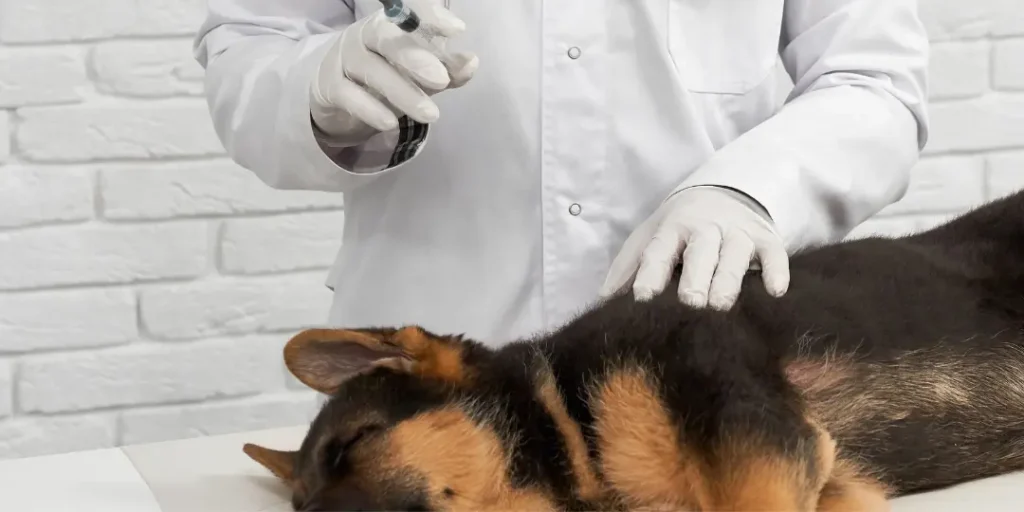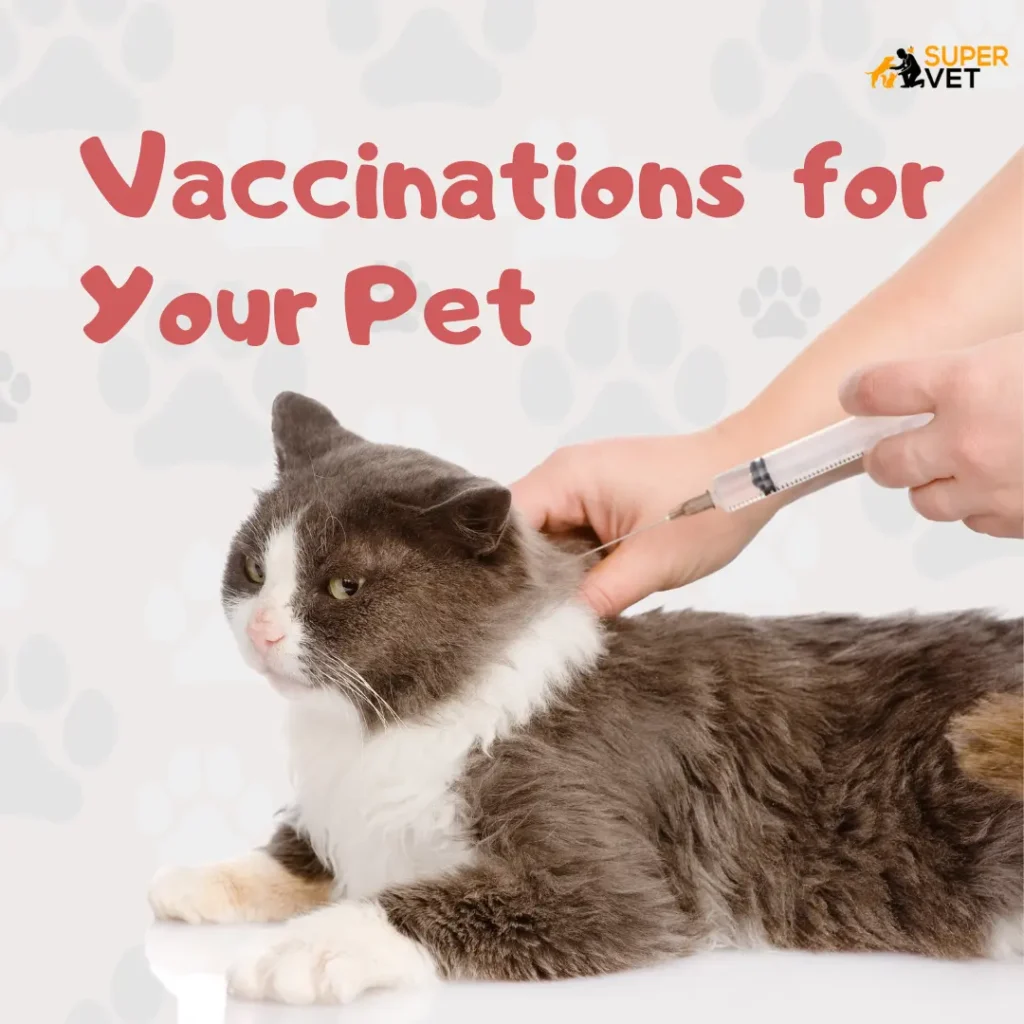Do you know how to recognize and treat the common health problems your furry friend might face? It’s never too early or too late to get your pet healthy! Get vaccinated and ensure that your pet is protected against diseases that could threaten his health.
Vets and owners alike agree that keeping track of your pet’s vaccination schedule is one of the most important things you can do as a responsible pet owner. Vaccinations are a must for any pet or family member that is allowed to visit home.
Your pets receive several types of vaccines to protect them against serious illnesses. Such as feline panleukopenia or parvovirus, and rabies. However, many people are unaware of the different types of vaccinations their pets require and whether or not it’s necessary for them.
This article supplies you with the top 5 recommendations for vaccinating your pet according to how healthy they are and need it most – stressed, overweight, old, sick, or injured.
What is a Vaccination?
Vaccination is the stimulation of the immune system to produce immunity to a specific disease or infection. The process involves inoculating your pet with a small amount of the relevant organism (i.e. bacteria, virus, etc) typically by feeding it to your pet via a pet feeding device.
The main goal of vaccination is to stimulate the immune system to produce antibodies. That will prevent the infection from progressing and taking your pet’s life.
There are two types of vaccinations: in-depth and partial.
A complete (or in-depth) vaccination is a series of vaccinations that includes all necessary vaccines and/or boosters for a disease or condition that your pet may be susceptible to.
A partial vaccination refers to a single injection of a few doses to protect your pet against a specific threat.
Determining the Timing and Frequency of Vaccinations

As with many things in life, timing is everything! Depending on the type of vaccination you are giving and your pet’s age. You may wish to vaccinate your pet early in life or late in life.
For puppies: Generally, puppies will mostly receive antibodies from their mother’s milk. If his mother has a healthy immunity system then the puppy will get benefit from this. Healthy and well-fed puppies should receive a series of vaccination starting at 6 to 8 weeks of age. At least three vaccinations should be administered by a veterinarian every two to four weeks. A final should be allocated at 16 weeks of age.
For Adult dogs: Some dogs receive annual vaccinations, while others may require a triple or quadruple vaccination.
For kittens: kitten will mostly receive antibodies from their mother’s milk. As soon as the kitten reaches three- or four weeks of age. Your veterinarian can begin administering vaccines at three- or four-week intervals until it is 16 weeks old.
For Adult cats: Cats should be revaccinated every year or three years depending on their age.
However, there is an increasing number of people who are finding that it is advantageous to defer vaccinating their older pets. Until they are older and less likely to be in a state of stress.
This allows them to receive the full benefits of a regular vaccination schedule without the side effects that come with a heavy, stressed pet. This is why it’s recommended to have a pet “Health Check” every year. Even if you’re not planning on keeping your pet long-term.
This is to ensure that your pet is healthy and happy. He has no issues that are delaying or preventing them from receiving all the vaccinations that they need.
What Are the Different Types of Vaccines for Your Pet?

There are four main types of vaccines used to protect your pet against illness or damage caused by infection:
- Distemper
- Hepatitis
- Parvovirus
- Rabies
- Canine tick
- Bordetella bronchiseptica
- Borrelia burgdorferi
- Leptospira bacteria
- Feline leukemia virus
- Chlamydophila felis
- Feline immunodeficiency virus
As your pet grows older and becomes more dominant, it is more likely to encounter virulent and highly infectious diseases that it may not be able to fight off by itself. So, it’s best to get them into the vaccination program as early in life as possible so they receive full protection.
Which Vaccines Are Best for My Pet?
The ideal time to get your pet into a vaccination program is when it is young and healthy. As your pet gets older, the best time to get its vaccinations is either before you plan to take your pet into retirement or after your pet has reached a healthy weight and is no longer being kept as a pet.
Depending on your specific circumstances, it is also worth considering which vaccines your pet doesn’t require and which ones are antiquated, harmful, or unnecessary.
Although some vaccines may no longer be necessary, it is always best to be safe than sorry, so check out the full list of recommended vaccinations for your pet to make sure it is up-to-date.
Conclusion
Vaccines are a great way to protect your pet against serious illnesses and damage caused by infection. However, it is essential to be aware of the different types of vaccinations your pet requires and make an informed decision regarding the purchase and administration of vaccines according to your pet’s health and behavior.
If you are unsure of which vaccines your pet requires or if it’s Golden, silver, or blue, check out our article on what are the different types of pet insurance.
Supervet provides the best Online Pet Services in Kota where you can also consult with vets about your dog’s health and take guidance from them.

